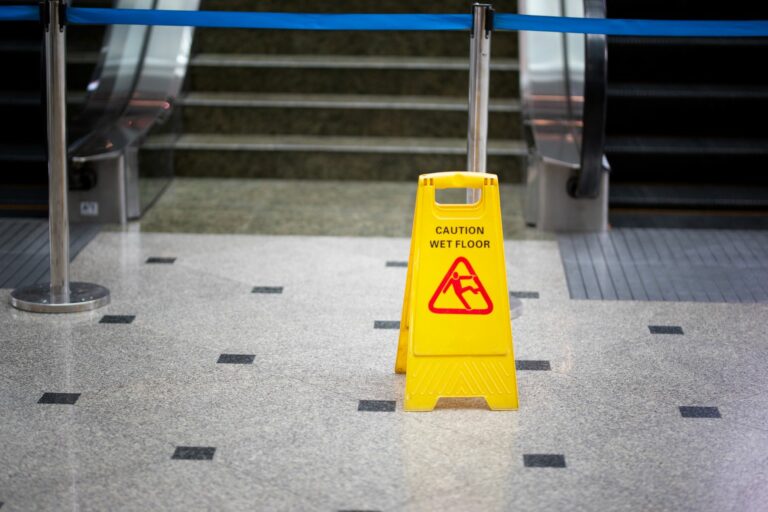Working from home can be a great boon on one’s mental health. Early mornings to take long commutes are becoming a thing of the past with the option to work from home growing. The physical and psychological stress has been lifted off many people, and they see the benefits in many aspects of their lives.
With a large number of people working from home, it would seem safe to assume that the number of workers’ compensation claims would be lower. This phrase was accurate at the beginning of the pandemic. However, as time progresses, employees have been getting into accidents at home, and filings for workman’s compensation have been steadily rising.
The line between personal injury and work injury is very fine when an employee works from a home office. It has become rather challenging to determine which injury the employee has and if they can claim workers’ compensation.
Is it a Personal Injury or a Work Related Injury?
A worker’s compensation system is considered no-fault. This means if an employee is injured in the “course and scope” of their employment, the injuries are covered under the employer’s workers’ comp insurance. The employee or other staff members’ negligence has no bearing on if they are able to claim workers’ comp.
Remote work injuries being claimed as workers’ compensation may seem brand-new to many. However, people who do remote work have been able to claim their injuries in the home as workers’ compensation for quite some time.
Employees are covered by injuries occurring outside of the office or workspace as long as the damage happened while doing something job-related. The main issue is determining what qualifies as personal versus work-related when an employee works from home instead of in an office or other work site. It is especially true when the injury could happen on any given day while walking around at home doing personal activities, so determining the line is crucial.
How Does Workers’ Comp Insurance Decide?
Insurance companies consider several factors when looking into worker’s compensation claims to differentiate between a personal injury or a work-related injury. However, it comes down to these basic questions:
#1. Was the employee doing work benefiting the employer?
An employee at the office is covered without much fuss. Even if the employee is on break and falls in a puddle of water that causes severe injuries needing a trip to the hospital, workers’ compensation covers medical bills and lost wages.
When at home, if you slip in a puddle of water before work getting out of the shower, you as the employee will more than likely not be covered by workers’ compensation. Taking a bath is a personal activity an employee does daily and not customarily covered if they work in an office environment.
However, say you as the employee are going out to your car parked in your driveway to get a box of files you left in the trunk overnight and slip on a pile of leaves a careless neighbor raked onto the asphalt. The injuries sustained while retrieving files for work could be covered by workers’ compensation since it benefited the employer for the employee to have the files.
#2. Was the activity employer required?
It is relatively straightforward to tell if the injury is work-related if it occurs at a work facility. Several people can document the incident and verify the damage isn’t work-related. An employee working from home will have difficulty proving their injury is work-related with no witnesses or without someone to collaborate that the injury was indeed related to the job.
#3. Did the Employer approve the activity causing the injury?
In a workplace, the activities of employees are often monitored by managers and other staff closely. There are very few cases where employees’ action in facilities is considered personal since documentation usually proves the company approved the activities.
Remote workers will likely not have documentation outside of their word to verify they injured themselves doing job-related activities. Witnesses play an integral part in workers’ comp in most cases, and not having people to back the claim does hurt the chances of someone not getting worker’s compensation.
How are the Courts Handling these Cases?
Times are changing in terms of how companies handle their workforce, and the judicial system is evolving with it. They are erring on the side of the employees and covering them in disputes.
The best course of action is to have expansive coverage when it comes to workers’ comp insurance. On top of protecting themselves and saving the judicial systems time, it ensures the employee can get back to work sooner by covering these things:
#1. Medical Expenses
Medical bills are a burden in normal cases, such as appendicitis or having tonsils removed. Workers’ Compensation will cover any hospital bills related to the work injury and any physical therapy bills needed to help the employee get back to the job sooner.
A repetitive injury, like carpal tunnel syndrome, is considered a workers’ compensation injury if it is job related. The employer is obligated to cover the injury if achieved on the job and deterioration on the body as result of working in the same field for years at the same job is considered workers’ compensation.
#2. Loss of Wages
Workers’ compensation does require the company to cover the employee’s loss of wages when they get injured on the job. Paying bills and buying food is a basic worry most people have daily. By covering loss of wages and ensuring the employee can cover their personal expenses, they can rest up and get back to work quicker.
#3. Money for Permanent Injury
There are many fields the injury the employee sustained may or may not be permanent. Workers’ compensation will cover any permanent job-related injury an employee sustained in relation to their job, which might include corrective surgeries or rehospitalizations.
What Happens if the Claim is Denied?
An employer may deny an employee hurt themselves at home while doing a job-related activity. They might claim the employee does not have sufficient proof or the action that caused the incident wasn’t sanctioned by the company. The only option an employee might have is to take their employer to court to receive what is rightfully theirs.
Hann Law Firm will work tirelessly to get you the compensation you deserve. We are here at the ready to assist you with your worker’s compensation claim. Contact us today and let us fight for you.






